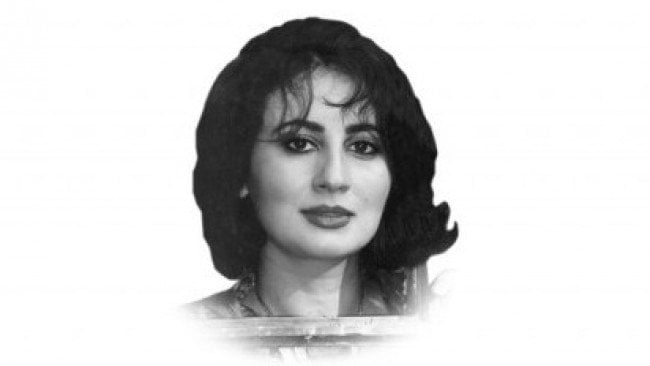
That the budget, usually much awaited and overly debated, was announced by an elegant, newly inducted minister with a lilt in his voice, a spring in his demeanour, and blood type IMF (plus) in his veins seemed to signal a new beginning, much like birdsong at dawn. The élan with which Dr Sheikh delivered his budget speech and the ease with which he underscored the points being made puts this new man in the cabinet head and shoulders above the pygmies who strut around the corridors of power, smug in their private knowledge that the contracts they have just awarded to this and that crony shall surely yield them a good harvest.
But this is not about the credentials of Dr Sheikh — rather it is about the harvest that never was. The harvest that was never sown, never nurtured, never reaped. It is about the harvest that is not taxed, that is not shared, that does not find its way in the belly of the tiller. It is about the fact that in a country where cash grants and hand-outs seem to be the only way to address hunger and deprivation, landowners who happen to find themselves in every parliament are not expected to add to the revenue of a fiscally starved economy.
Shall we blame it on the vagaries of the weather? On the introduction of terminator seeds? On a Green Revolution which should have sown the seeds of a red one? Or should we look more carefully at the dispensation that we call democracy, and which is slated to be the best revenge?
And revenge it is, indeed. It is the revenge of those who have fattened themselves on the grossly iniquitous distribution of arable land. Along with the sun, it is the zamindar of this country who has burnt the backs of the peasantry, landless and choice less in the face of tyranny. How can we actually be taken in by a system which is predicated on the virtual enslavement of those who labour and produce what only five percent of the population eats and enjoys? How can we see this as consonant with the fundamentals of democracy, i.e., the ability to make free and informed choices? How can we not see the moat in the eyes of the moustachioed lords whose black hearts match only the blackest of hair dye applied generously on their rapidly disappearing, treacherous strands of hair?
Only a farce would match the drama being played out in my beloved, blighted country today. This is a land where crimes are committed with impunity, money stolen without accountability, where criminals nurture a constituency of like-minded criminals and exercise unbridled power. This is a country where a peasant is forced to vote for his master because he has no choice, because he fears the violence that could be unleashed if he dared to differ.
It is a land where the cost of healthcare forces a family into a lifetime of debt. It is a place where the issue of women’s right to control their own fertility, thereby insuring that the population does not outstrip the resources available to it, is considered inconsequential or not significant enough for it to be taken seriously. It is a realm where lessons are not learnt, where we seem to be doomed to self-destruct, where well-cut suits and eloquent words shall not soothe the wounds which run deep.
My country is one where children die for want of milk. It happened in Naxalbari. It is happening here. The difference is whether we can see it, from behind our designer shades, seated safely behind the bullet-proofed, tinted windows of our luxury vehicles for which we have conveniently forgotten to pay requisite taxes.
That, Dr Sheikh, is the point that needed to be made on your day in Parliament. How long shall your fellow cabinet members milk this country? Our rivers run dry already; very soon, so shall the blood in our veins.
Published in the Express Tribune, June 18th, 2010.

1731028448-0/Untitled-design-(37)1731028448-0-165x106.webp)











COMMENTS (6)
Comments are moderated and generally will be posted if they are on-topic and not abusive.
For more information, please see our Comments FAQ